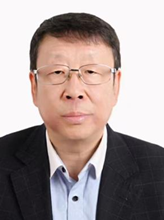| Biography | |
|---|---|
 Prof. Dejun Li Tianjin Normal University, China |
|
| Title: Cu Ion Implantation induced Nanozyme Cu@MoS2 Synthesis to Inhibit growth of Cancer-cell | |
| Abstract:
Nnanoenzyme catalysts have attracted increasing attention in recent years owing to their superior peroxidase-like activity and ability to address the limitations of natural enzymes such as low stability, high cost and difficult storage, which could be used as an effective therapeutic strategy for inhibiting tumour cell growth[1-3]. Meanwhile,molybdenum disulfide (MoS2) as a carrier was reported to facilitate the oxidation of the thiol to the disulfide but the MoS2 remained chemically unchanged, consequently avoiding the releasing of toxic metal ions [4]. For these reasons, in this work, popcorn hollow MoS2 was prepared by mixing ammonium molybdate [(NH4)6Mo7O24•4H2O] and potassium thiocyanate (KSCN) at high temperature, and then implanted by Cu ions via ion implantation technology to form a Cu@MoS2 nanoenzyme. STEM analysis showed that Cu was existed as nanoparticles in the MoS2. And the in vitro cytotoxicity test showed that Cu@MoS2 had an obvious inhibitation to the mouse breast cancer cells (4T1). Our work provides a useful method for the design and development of artificial enzymes for replacing traditional enzymes in cancer therapy.
Keywords: Nnanoenzyme, Cu@MoS2, Nanoparticle, Ion implantation, Cancer treatment
References
[1] Ji, S., Jiang, B., Hao, H., et al. Matching the kinetics of natural enzymes with a single-atom iron nanozyme. Nat Catal 4, 407–417 (2021).
[2] Gao, L., Zhuang, J., Nie, L., et al. Intrinsic peroxidase-like activity of ferromagnetic nanoparticles. Nature Nanotech 2, 577–583 (2007).
[3] Liang, M. and Yan, X.. Nanozymes: From new concepts, mechanisms, and standards to applications. Acc. Chem. Res. 52, 2190–2200 (2019).
[4] Wu, S., Liu, X., Ren, J., et al. Glutathione depletion in a benign manner by MoS2-based nanoflowers for enhanced hypoxia-irrelevant free-radical-based cancer therapy. Small, 1904870(1–10) (2019).
| |
| Biography:
Dejun Li, distinguished professor of Physics and Materials Science, Tianjin Normal University, China, received his Ph.D. degree from the Tsinghua University, China, in 1999, He entered Northwestern University, USA as a Postdoctor in 2001. In 1998 he was appointed to be full Professor.
Dr. Li’s research is focused on nanomaterials, energy storage materials, biomedical materials, ion-beam and thin films for surface modification of various materials. The scope of Li’s research ranges from fundamental science, to applied nanotechnology and thin film or ion-beam technology, to emerging engineering issues - with a unifying theme centered upon development and application of novel thin films and nanomaterials for modification of various real materials. He has published more than 300 research articles in the related areas. He holds more than 20 Chinese patents and has presented over 20 invited talks in international academic conferences.
| |
